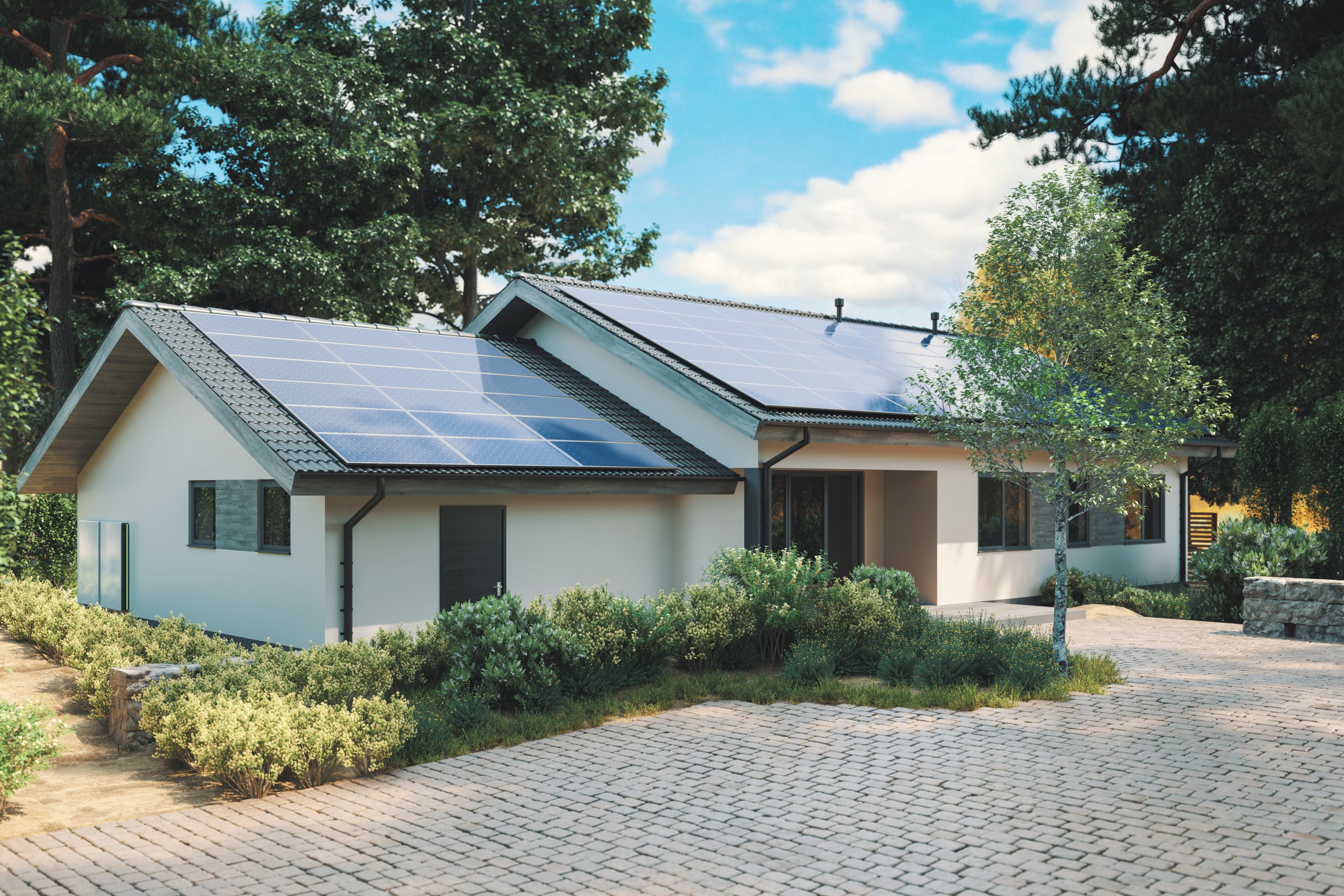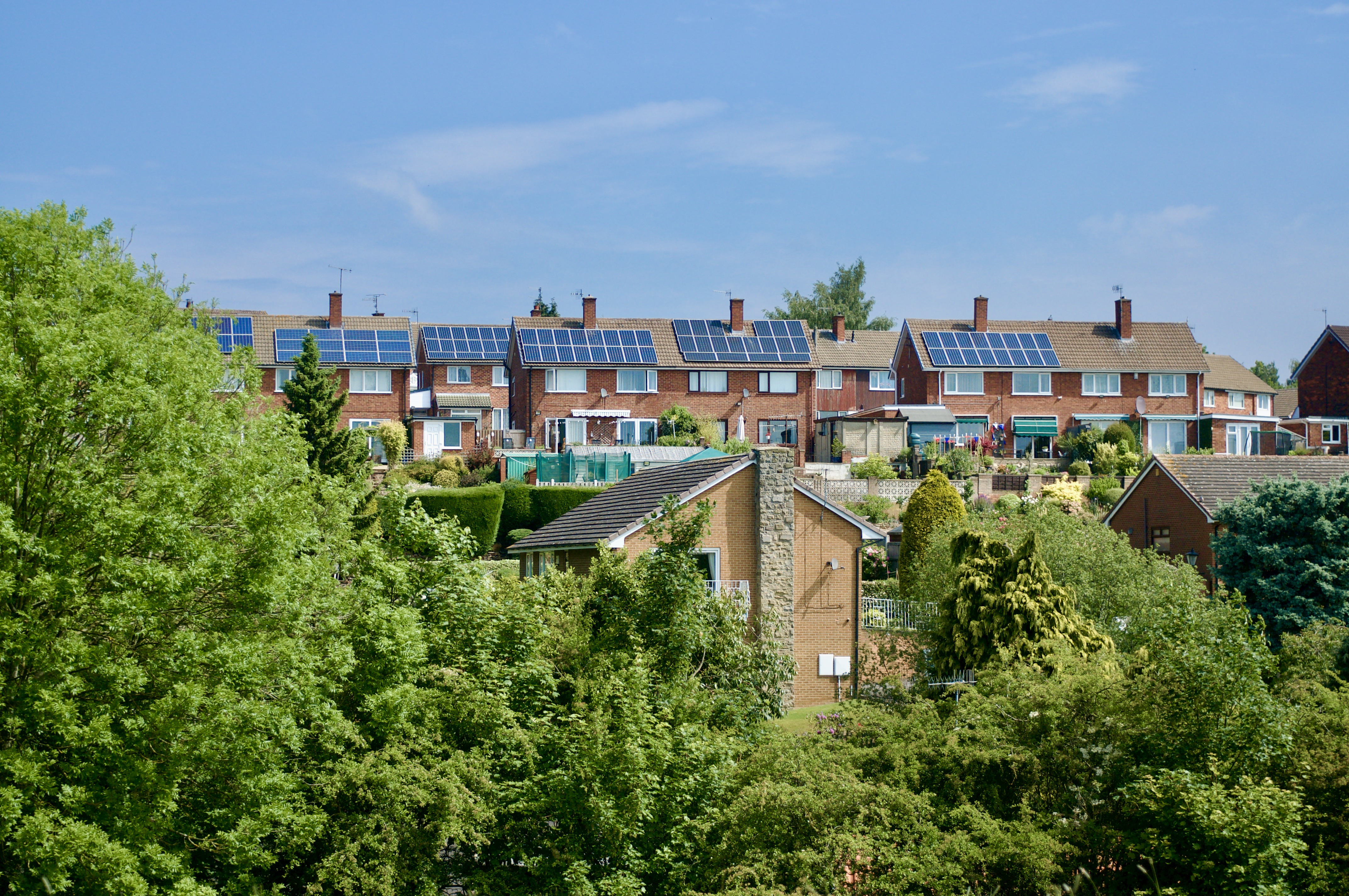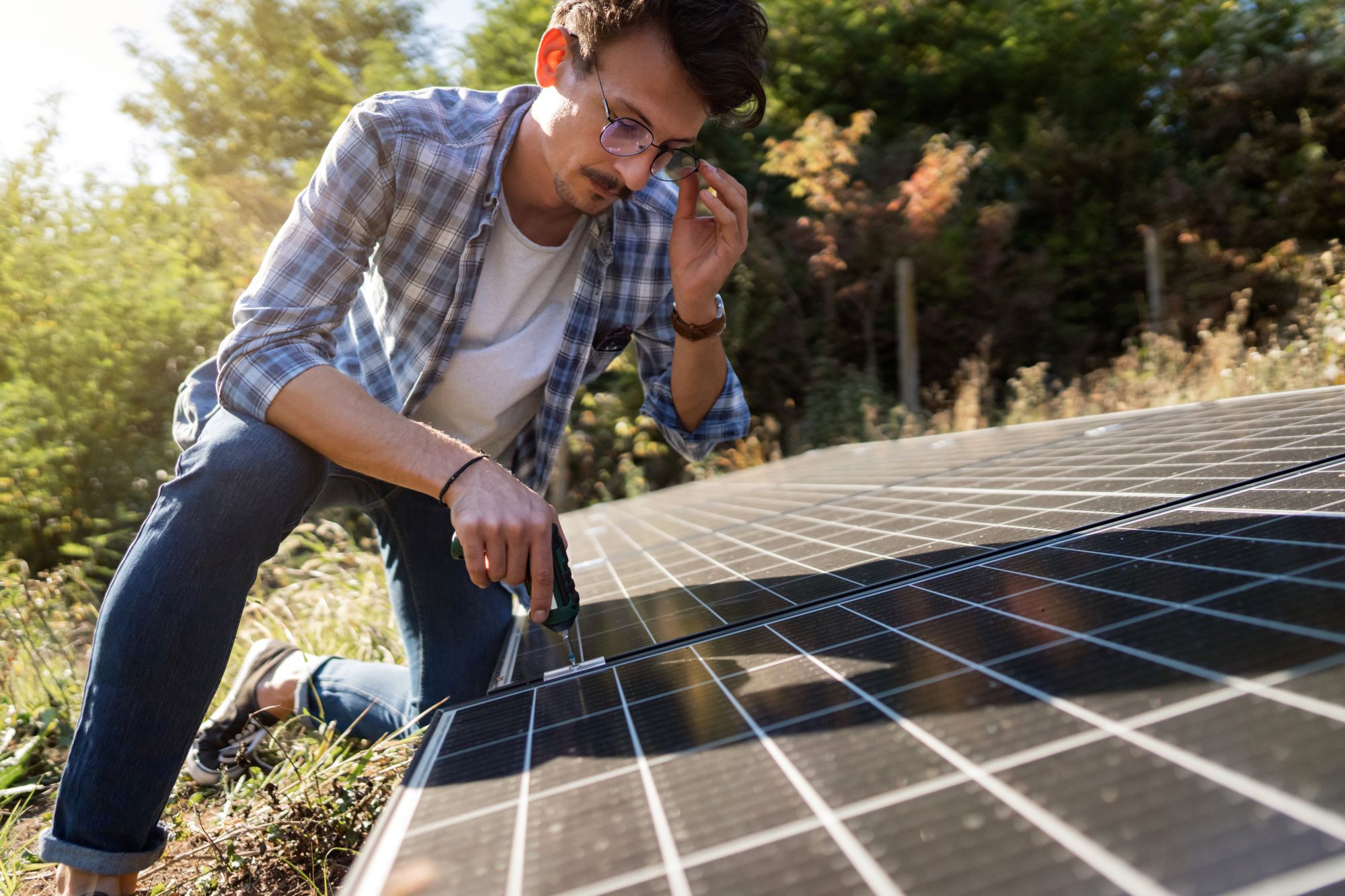Do you need planning permission for solar panels? Our planning expert reveals what you need to know
With energy bills rising, you might be looking at installing solar panels on your home to save money. Here's our guide on planning permission for solar panels

Planning permission for solar panels might be necessary when adding this renewable technology to your home. More and more homeowners may be looking to install renewables to their properties to reduce their energy costs as energy prices continue to rise. However, checking whether planning consent is required can be an all-important step prior to installation.
If your property lends itself to it, solar panels can be easily added to either the roof, or in your garden if it is large enough. Solar panels also have the added bonus of being a good way of reducing our carbon emissions too.
Our planning expert Simon Rix looks at when you need planning permission to add solar panels to your home.
Do you need planning permission for solar panels?
To install solar panels on most roofs you don’t need planning permission as they are often covered by permitted development rights. The rules apply to both solar thermal panels and solar PV.
However, permitted development rights do not always apply as there are a few exemptions. If your project falls into one of these, you will require planning permission unless you can make any adjustments to your plans. Exceptions can include:
- Your property is listed
- There are some parts of the country where permitted development rights don’t apply or they have been removed from your property (check with your local planning authority)
- Installing solar panels on a maisonette or flat would also require a planning application
Even if you are outside these, you still need to stick to a few rules to avoid a planning application. These include:
- Roof-mounted panels cannot protrude more than 20cm from your roof surface (this excludes chimneys and parapet walls);
- And they cannot go above the apex of a sloping roof at all, or be higher than the highest flat roof. For this reason, solar panels on flat roofs often require planning permission.
What's more, the installation should be planned so it minimises the visual impact on the house and local area, as far as possible. And solar panels should be removed if they're no longer in use.

How many solar panels can I install on my roof?
There’s no specific limits on the number of panels you can install, other than the amount of suitable roof space you have.
Can I put solar panels on the front of my house without planning permission?
Yes, if the installation falls under permitted development. However, if you live in a conservation area or world heritage site you can’t put solar panels on the principal or side elevation walls of your house if it fronts a highway. This would require a planning application.
Are there restrictions for solar panels on a listed building?
Most of the permitted development rights mentioned above do not apply if you have a listed building, so you will need planning permission. And you will need to get separate listed building consent too. This may be the case for solar batteries too.
I’m working on such a project right now and there are lots of issues that need addressing like this, so I’d advise talking to a professional planning consultant before anyone else if you have a listed property.
Can I put solar panels in my garden without planning permission?
To avoid a planning permission application, ground-mounted panels can only have one installation and it needs to be at least 5 metres from the boundary of your property, it can’t be more than 4 metres high, and it can’t be larger than 9 square metres.
If you are in a world heritage site or conservation area the panels must not be visible from the highway.

Do I need building control approval for solar panels?
All solar panel installations that impact a building will need to abide by Building Regulations, especially those related to structural and electrical safety.
Regarding structural safety, especially if you are wanting a roof-mounted system, it’s best to get a roof survey done early on, to ensure your roof can take the weight of system.
The formal Building Regulations approvals should ideally be dealt with by your installer (otherwise you will need to approach your local authority building control or a private approved inspector), but make sure you get the certificates from them.
Do I need permission to connect to the grid?
If you are going to connect to the national electricity grid, so you can export and sell any excess energy you generate, then your local Distribution Network Operator (DNO) will need to at least be informed. Again your installer should help you deal with this.
Get the Homebuilding & Renovating Newsletter
Bring your dream home to life with expert advice, how to guides and design inspiration. Sign up for our newsletter and get two free tickets to a Homebuilding & Renovating Show near you.
Simon Rix is a professional planning consultant, who began his career working in local government in the 1990s. He was a council officer and later an elected councillor, so he knows how the planning system works from both sides. He went on to set up Planix.UK Planning Consultants Ltd; a consultancy company that advises self builders, home extenders and those taking on small to medium-sized building projects on planning permission.

